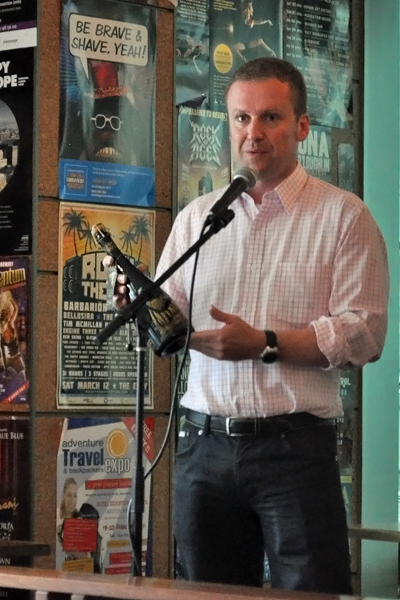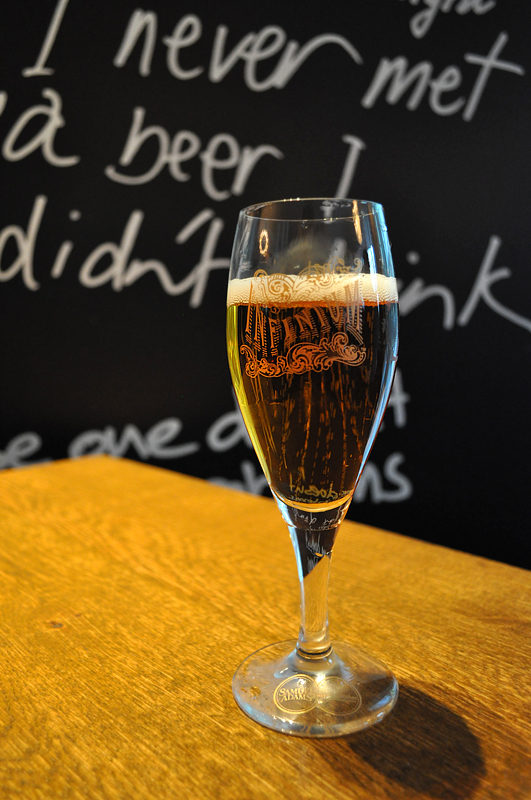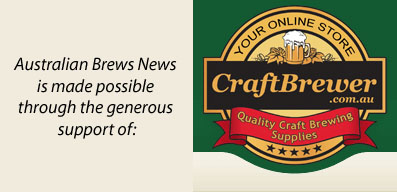
To Infinium and beyond…
In Germany, beer is serious business. Beer excellence and tradition is a source of national pride. So, when an executive staff member from one of the country’s oldest breweries announces that their brewers wanted to “go crazy” and “have some fun” with their regimented ways, the beer world will pay attention.
Germany’s breweries regularly express their pride in producing beers in strict accordance of the Reinheitsgebot (the German/Bavarian Beer Purity Law of 1516), which stipulates that beer can only be produced using malted barley, hops, water and yeast. (Yeast was not a known element of beer until the 1800s).
In modern day practice many of the breweries that fly the Reinheitsgebot flag only brew some of their beers in accordance to this ancient law, allowing non-traditional ingredients to be used throughout the majority of their products.
One prime example of this is the Bavarian State Brewery Weihenstephan, self-proclaimed “guardian of the original Reinheitsgebot law”. Despite this guardianship, 85 per cent of Weihenstephan’s production is wheat beer. Hence, they are not entirely dedicated to the old law of Beer Purity that arose from the need to protect wheat against its use in beer and conserve the commodity for bread making.
Essentially, the Reinheitsgebot today only stands as an exercise in PR and Marketing after it was significantly altered over the centuries. Wheat was eventually allowed and then the law was finally repealed from the national canon in 1988.
Although largely a marketing exercise today it is pervasive and powerful one, so for a Germany brewery to take on the limitations imposed by it, you must respect the attempt they put forward.
The result of Weihenstephan’s jovial brewing challenge is Infinium, launched recently in Melbourne by Marcus Englet, Weihenstephan’s Director of Export Sales. The local beer and brewing community came together at Melbourne’s Beer DeLuxe for their first experience of Infinium, alongside the regular Weihenstephan wheat-driven range. It was the second such Australian event following an earlier launch at the Sail and Anchor in Fremantle.
Introduced by Leif Ryan of Phoenix Beers, the Australian importer and distributor of Weihenstephan products, Marcus explained that after centuries of strict, no-nonsense brewing, Weihenstephan were ready for “some fun” and decided to see how far they could effectively push the Reinheitsgebot’s boundaries.
This extreme end of the brewing approach that Weihenstephan were now prepared to consider has been championed by North American brewers over the last decade. With the USA’s leading edge craft beers – from Rogue’s Double Dead Guy Ale and Stone’s Arrogant Bastard Ale to the Dogfish Head Midas Touch and their Pumpkin Ale – there seems to be no end to the ingredients and techniques that American brewers are willing to experiment with when creating a new brew. Therefore, Weihenstephan looked towards America and in 2008 they established a partnership with the Boston Beer Company to assist with their Reinheitsgebot challenge.
After initial meetings to initiate and manage the project, the collaborating brewers worked in their respective breweries to find the right yeast and fermentation techniques to perfect a champagne-like beer. Progressive samples were sent regularly between the breweries to ensure exact consistency was sustained during each stage of development.
The successful yeast strain was a champagne yeast sourced from Northern France, whilst a lager yeast was used during a second and third fermentation. The champagne yeast provides Infinium with a fruity aroma and citric flavour, as well as very dry finish, followed by a slight aftertaste of pineapple. The beer is built on blend of malted barley, spring white wheat and oats while Bavarian noble hops (Hallertau Mittlefrueh, Spalt Spalter, Tettnang Tettnanger and Hersbrucker) are used to dry hop the brew and provide a low bitterness. Finally, bottle conditioning helps add another element of complexity and some light spicy notes.
Infinium, which Weihenstephan hopes will be the first in a number of beers produced by the partnership, takes on the interpretation of fun drinkers would associate with dinner parties and special celebrations.
“Infinium is a beer that does not look like a beer”, noted Marcus as he explained how the champagne-like appearance and dryness of this new beer provides the fun for consumers through contrasting the misleading appearance with its big fruity flavour.
“Bière de Champagne” is the style that Weihenstephan and the Boston Beer Company have applied to Infinium. However, some have suggested that it could also classified as a Belgian Tripel. On his first taste of the beer, Australia’s foremost beer writer, Willie Simpson, suggested that it is simply an Extra Strong Belgian Golden Ale. Whilst the appearance and aroma showcase a finely-crafted beer, Willie questioned by the substantial yeast character of Infinium.
The triumph of Infinium is the well hidden 10.3% abv, which is barely noticeable on both the nose and tongue.
Infinium is now brewed by the two partnering breweries, with production from the Boston Beer Company supplying North America and Mexico, while Weihenstephan supplies the rest of the world, including Australia.
Due to the initial popularity of the product, this new beer will be an ongoing product from Weihenstephan, making it the thirteenth beer in their range and the twelfth now available in Australia.
Importer Phoenix Beers introduced Weihenstephan beers to Australia in 2003. The popularity of the products has seen them grow to become a standard in bottleshops large and small. Infinium will be a little harder to come by and will only be stocked by limited selected outlets, specialty beer bars and fine dining establishments due to its specialty status.
Sold in 750ml champagne bottles with an RRP of $40, consumers will also have the opportunity to buy exclusive Infinium-branded 0.2l flute glasses, as well as gift packs of Infinium with a set of 2 glasses, targeting the product at more formal and classy occasions.
While Infinium has the benefit of two famous brewery brands and the idea of targeting this as a beer for special occasions and fine dining, it may take some convincing of the local beer connoisseurs that is a beer worthy of any great praise if reactions are anything to go by.
What is bound to ultimately excite all genuine beer nerds and brewery historians is the invitation Marcus Englet extended to Australia’s Weihenstephaner drinkers during the Beer DeLuxe Infinium launch.
“In 30 years time (2040) it is Bayerische Staatsbrauerei Weihenstephan 1000th birthday and you are all invited to the party. Prost!”






